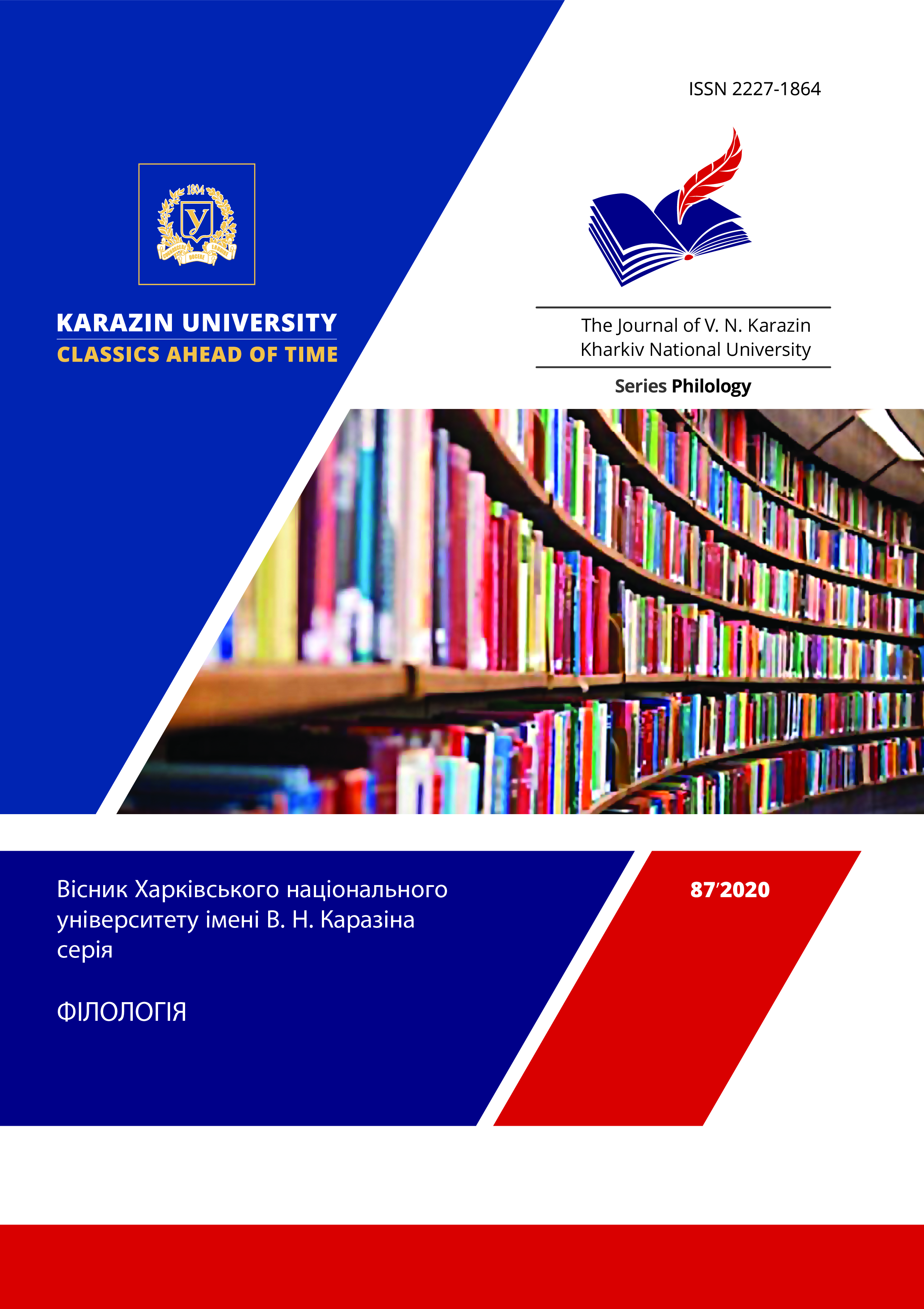Armed conflicts as a source of new formations in the Russian language (on material of the armed conflict in Donbass)
Abstract
The vocabulary of a language is a variable quantity, it is constantly changing, responding to the needs of life and reflecting its new realities. The events taking place in the South-East of Ukraine since March 2014 have significantly changed the usual picture of the world of the parties involved in this conflict, led to a new interpretation of reality, the emergence of new mental constructs, objectified in the language using a number of lexical innovations, most of which fall under the definition of „hate speech”. The purpose of this article is to try to examine the impact of the armed conflict in the South-East of Ukraine on the emergence of lexical innovations in the Russian language, to identify ways of forming new units and their main thematic clusters. The material for the work was neoplasms recorded in electronic Russian and Russian-speaking Ukrainian mass media, as well as selected from social networks and videos.
The analysis showed that in the context of the armed conflict in the South-East of Ukraine, the characteristic manifestations of „hate speech” are mainly numerous new categories-labels with a pronounced conflict potential. The priority in this regard is offensive and derogatory nominations of representatives of the opposite camp, taking into account their worldview / ideological, national / ethnic, territorial / regional characteristics. The military jargon has also undergone a significant update, incorporating not only the reactualized slangisms of the era of the Afghan campaign of 1979-89, but also lexical innovations caused by the military and political realities of the current armed conflict in the Donbas. Neologisms are formed in accordance with the existing methods in the Russian language (word formation, semantic derivation, borrowing). At the same time, non-standard word-forming techniques are also used (language play, homophony, etc.).
Downloads
References
Bojko B. L. Voennaja leksika v rechevom obshhenii. Voprosy psiholingvistiki. 2015. № 3(25). S. 44-53.
Valgina N. S., Rozental' D. Je., Fomina M. I. Sovremennyj russkij jazyk: uchebnik / pod redakciej N. S. Valginoj. 6 izd., pererab. i dop. Moskva: Logos, 2002. 528 s.
Vendina T. I. Vvedenie v jazykoznanie: ucheb. posobie dlja pedagogicheskih vuzov. Moskva, Vyssh. shk., 2001. 288 s.
Kak opredeljaetsja v mezhdunarodnom gumanitarnom prave termin «vooruzhennyj konflikt»? URL: https://shhshhshh.icrc.org/ru/doshhnload/file/51020/armedconflictdefinition.pdf (data zvernennia: 10.10.2020).
Krysin L. P. Inojazychnye slova v sovremennom russkom jazyke. Moskva: Nauka, 1968. 208 s.
Lazarev V. «Seli i dogovorilis'!» Kak v seroj zone vidjat mir na Donbasse posle «normandskoj chetverki». Fokus, 12. 09. 2019. URL: https://focus.ua/politics/446019-territoriia_neopredeljonnosti (data zvernennia: 15.10.2020).
Reformatckij A. A. Vvedenie v jazykovedenie. Moskva: Aspekt Press, 1996. 536 s.
Russkij jazyk na Ukraine. URL: https://ru.shhikipedia.org/shhiki (data zvernennia: 16.10.2020).
Timoshenko D. Voennye dejstvija i «jazyk vrazhdy» – nerazryvnye ponjatija – jekspert. Radіo Svoboda, 07. 12. 2017. URL: https://shhshhshh.radiosvoboda.org/a/donbass-realii/28902620.html (data zvernennia: 12.10.2020).
Habibullina F. Ja. Leksikograficheskoe opisanie sovremennoj francuzskoj i russkoj politicheskoj neologii. Vestnik Marijskogo gosud. un-ta. 2016. T. 10. № 2(22). S. 92–100.
Habibullina F. Ja., Ivanova I. G. Regional'nyj konflikt kak istochnik popolnenija politicheskogo korpusa leksicheskih edinic tipologicheski nerodstvennyh jazykov. Filologija i kul'tura. Phylologie and culture. № 2 (40). K(P)FU, Kazan', 2015. S. 132–141.
Cyganenko G. P. Sostav slova i slovoobrazovanie v russkom jazyke. Kiev: Rad. shk., 1978. 255 s.
Shagalova E. N. Predislovie. Samyj novejshij tolkovyj slovar' russkogo jazyka HHI veka. Okolo 1500 slov. Moskva: AST-Press, 2017. S. 3–11.
Shanskij N. M. Ocherki po russkomu slovoobrazovaniju. Moskva: Izd-vo Mosk. un-ta, 1968. S.75–205.
Fiyalka S. Mova vorozhnechi na storinkax prorosijs`ky`x internet-medij u social`ny`x merezhax. Informacijne suspil`stvo. 2016. Vy`p. 24. S. 15–21.
Yavorska G. Mova vijny` yak skladova konfliktu (shlyaxy` transformaciyi ukrayins`kogomedijnogo dy`skursu). Strategiyi transformaciyi i prevenciyi pry`kordonny`x konfliktiv v Ukrayini. Zbirka anality`chny`x materialiv. L`viv: Galy`cz`ka vy`davny`cha spilka, 2015. S. 366–398.
Jazyk vrazhdy. URL: https://ru.wikipedia.org/wiki (data zvernennia: 18.10.2020).




